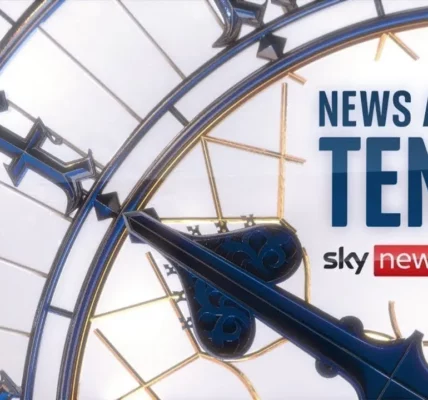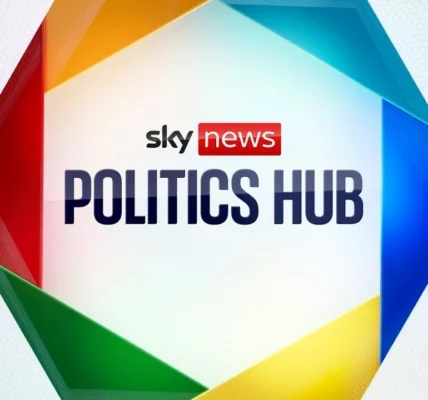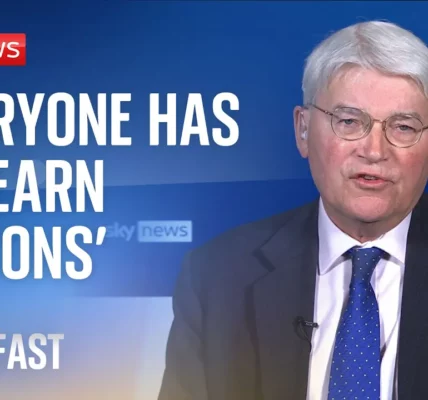The Latest in British Politics: Tory Leadership Updates and Government Legislation

Welcome to our detailed analysis of the current landscape of British politics, where we break down the latest developments, including the Tory leadership contest, recent government actions, and critical upcoming events. Stay informed and engaged with the political scene emerging from Westminster.
Introduction to British Politics Today
As the political landscape in the UK evolves, it’s crucial to stay updated on the latest happenings. This article will delve deep into the significant events shaping British politics, particularly focusing on the ongoing Tory leadership contest, the government’s legislative agenda, and the implications of the upcoming Trade Union Congress. With the political season in full swing, understanding these developments is essential for both political enthusiasts and citizens alike.
The Tory Leadership Contest: An Overview
The Tory leadership contest has become a focal point of political discussion as candidates vie for the top position within the party. Recent voting results have highlighted unexpected outcomes, shifting the dynamics of the contest.
Recent Voting Outcomes
In the latest round of voting among Tory MPs, Robert Jenrick emerged as a surprising frontrunner, gathering 28 votes, significantly ahead of his nearest rival, Kemi Badenoch, who received 22 votes. This unexpected result raises questions about the candidates’ appeal and the strategies they need to adopt moving forward.
- Robert Jenrick: 28 votes
- Kemi Badenoch: 22 votes
- James Cleverly: 21 votes
- Tom Tugendhat: 16 votes
- Mel Stride: 14 votes
- Pretty Patel: 14 votes (eliminated)
Candidate Analysis
The current standing of candidates suggests a shift in support among Tory MPs. Kemi Badenoch, despite being a frontrunner in public opinion polls, underperformed in the MP vote. This could indicate a divergence between grassroots support and parliamentary backing.
Strategic Implications
As candidates prepare for the next voting round, the redistribution of votes from eliminated candidates like Pretty Patel will be critical. Observers are keenly watching how these votes will impact the final candidates and ultimately shape the future leadership.
New Government Legislation: Key Developments
The government has been active in introducing new legislation aimed at addressing various pressing issues. Key bills and reforms are set to be debated, highlighting the administration’s priorities and challenges ahead.
House of Lords Reform Bill
The government is set to introduce the House of Lords Reform Bill, which aims to abolish hereditary peers in the House of Lords. This move is seen as a significant constitutional change, reflecting ongoing discussions about the relevance of hereditary positions in modern governance.
Water Company Accountability Measures
In response to increased public dissatisfaction with water companies, the government is proposing new accountability measures. These include potential fines and jail sentences for water company executives over pollution incidents, emphasizing a commitment to environmental protection.
Energy Policy: GB Energy Bill
The GB Energy Bill is also on the agenda, aiming to create an investment vehicle for green energy initiatives. However, skepticism abounds regarding the feasibility of the government’s ambitious decarbonization targets by 2030.
Looking Ahead: The Trade Union Congress
As the political week progresses, all eyes will be on the upcoming Trade Union Congress, where significant discussions regarding workers’ rights are expected. This event will serve as a platform for labor leaders to challenge government policies and advocate for reform.
Key Issues for Discussion
Among the topics to be addressed are:
- Workers’ rights legislation
- Strategies for economic growth
- Responses to government policy on union activities
Political Repercussions
The outcomes of these discussions could have lasting impacts on labor relations and political alignments within the UK, particularly as the Labour Party prepares for parliamentary tests on key policies.
Conclusion and Call to Action
In summary, the current state of British politics is marked by a dynamic Tory leadership contest, significant legislative reforms, and an upcoming Trade Union Congress that promises to reshape discussions around workers’ rights and government accountability. Staying informed is essential as these events unfold, and we encourage readers to engage with the political process actively. Share your thoughts, ask questions, and participate in discussions to help shape the future of British governance.
“`




